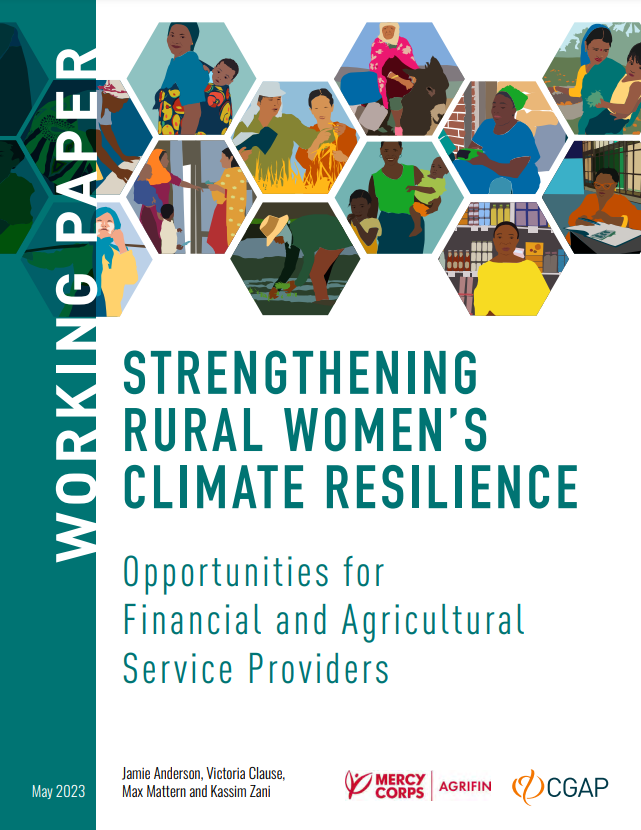Strenghtening Rural Women’s Climate Resilience

Rural women are central to building more resilient global food systems, yet face disproportionate threats from climate stresses and shocks. To help rural women adapt and thrive in the face of climate change and boost food security, service providers must design and deliver financial and non-financial solutions that create value for rural women as well as their businesses.
- Rural women are a diverse group, varying by lifecycle stage, household dynamics, livelihood, and social context. Within their diversity, common trends influence rural women’s lives and livelihoods such as gendered social norms and how they understand, perceive, and react to climate change.
- Successful service providers must recognize the potential of new technologies to deliver climate-smart solutions to rural women at scale as well as the diversity of rural women according to life stage, livelihood, and cultural context and specific profiles.
- By combining digital data, digital payments, mobile channels, and platform approaches with in-person support and expertise, innovative business models are making it easier for providers to reachwomen at the last-mile, while also addressing women’s mobility, time, and privacy concerns.
In this working paper, CGAP and Mercy Corps AgriFin share their experience working with service providers to build rural women’s resilience and livelihoods. The paper provides an overview of 10 opportunities for service providers, investors, and donors to improve rural women’s resilience to climate change, and gives examples of innovative ways in which financial and agricultural service providers are already seizing these opportunities.